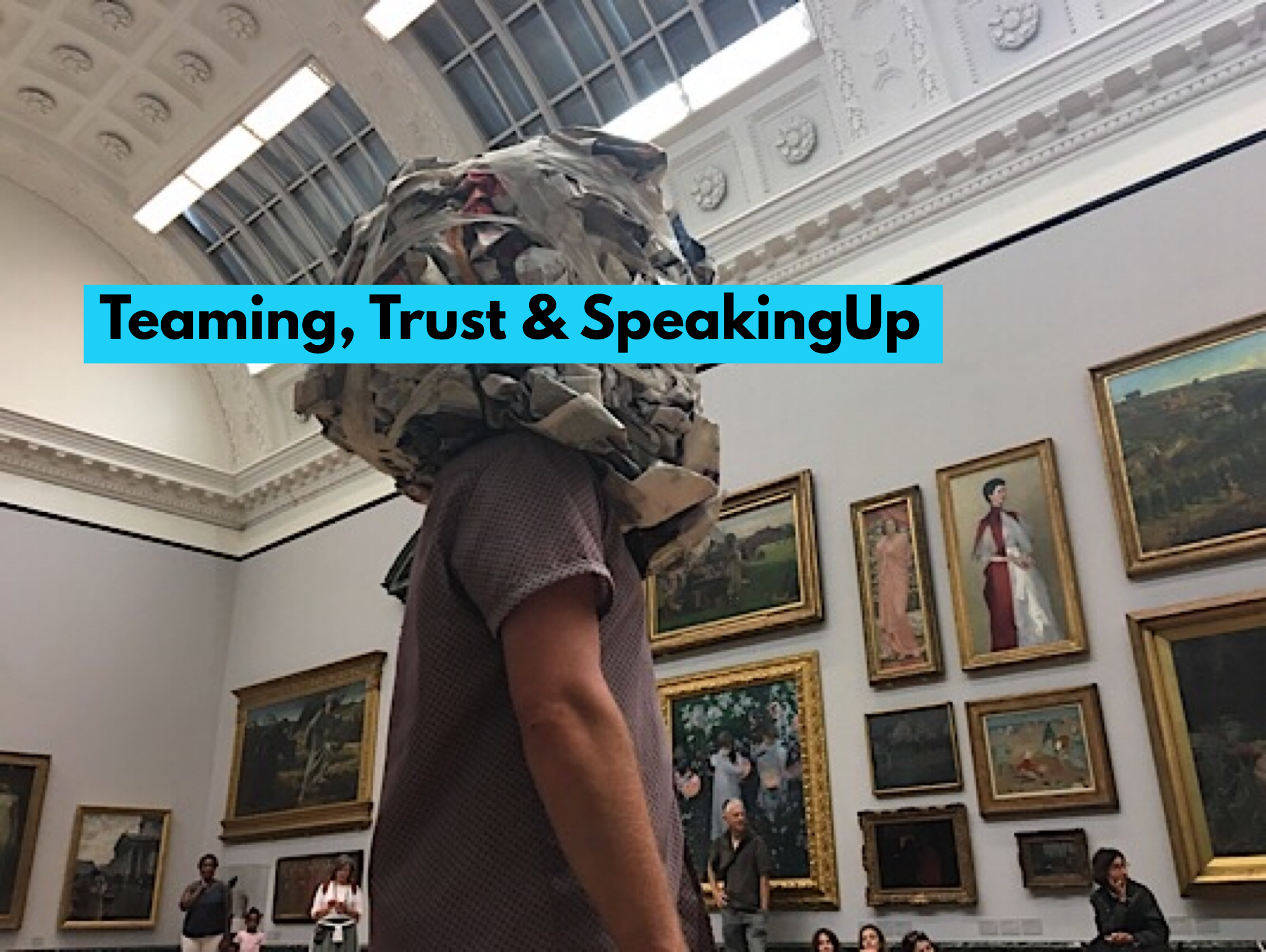-what theatre teaches me about elite teams and business
-speaking up and empowering people
I work in a high performing team within investing. This is a very competitive “sport”. There are many smart teams also competing and it’s a mix of skill and luck which is complex. It’s very hard to beat the benchmark and competitors over time. There is a large amount of noise and bias.
In my view the best teams learn from other “sports” and industries. I’m fortunate that I’ve been part of elite teams within theatre. I happen to assess elite management teams within business and healthcare R&D, but that’s another story.
The three concepts I’d like to discuss are:
Psychologist Safety or SpeakUp
Teaming, or when it’s not possible to do it all
Prosocial, or giving as a way to excel
I’ve blogged previously on the Amy Edmondson work and the Google studies on the importance of psychological safety within teams. (Link end). This is the idea that you need to be able to feel free to say anything to your team and when you can’t or don’t feel safe - then a team fails to perform at its best.
The best theatre teams I’ve worked with always nurture this. While it’s often led by a director, this doesn’t have to be the case. I’ve seen ensemble and collaborative work, not director led.
These teams encourage all members (including lighting, sound, costume, stage management and so on) to speak up if they have an idea or see something wrong.
Part of this is the observation that much theatre has no “correct” answer. It’s an act of creation which may be finally somewhat completed or judged by an audience but has no answer.
I’m aware of some directors that lead by sheer force of ideas and personality. On occasion these create spectacular works but the dark side is that teams don’t or can’t speak up and feel safe.
As I will reflect on giving and vulnerability this has allowed at times a culture of abuse where people didn’t speak up. (cf. MeToo)
I speculate as to how much greater their works might have been with an ensemble vision over a singular vision. As theatre like football is mostly a team endeavour unlike golf which is more singular.
Still there is something special about the rehearsal room. This is a space specifically designed to learn, experiment, practice and “fail”. It’s accelerated and intense.
Business teams would benefit from seeing elite theatre makers - directors, actors, backstage, design - in action.
There is no failure in the best rehearsals because there’s only learning on what might work for this group at this time. Final completion can’t be until audience stage (and that may continue to develop too). There’s no fixed mindset.
On top of this, theatre is not an activity where you can do it all yourself. Actors don’t work in a vacuum and even solo shows have lights, directors, maybe sound or movement, design or costumes and so on. There is a definitive understanding of this from the start.
While most businesses today are in an hierarchy, they most often operate in teams and while CEOs might lead them, they rely on numerous sets of teams to keep their businesses running and they themselves - although they might not realise it - are part of a team.
Rehearsals teach businesses and teams about continuous improvement. In terms of innovation or acts of creation, they teach about how to learn and how no learning occurs without “mistakes, dead ends or failures” - which seem to me be words with the wrong tone for innovation.
The acts of theatre should remind business people that no one works alone and that we work best in teams. And in reality business people are already leading teams.
Where do theatre teams go beyond the normal? It’s often in how much the players give. Of themselves, to others. In theatre, there is (and was) the danger which we now see in MeToo but that is giving without safety - and psychological safety embedded by the whole team must come first.
But where that is in place then the best theatre is very generous in what the players give.
Turning to business this is embodied in the idea of servant-leaders. Leaders who lead by giving back to the whole organisation and help try and raise up everyone else.
Why does this giving behaviour seem to work? I don’t have solid evidence but my speculation is that what is happening is that the value of the social and relationship “asset” grows from this type of pro-social behaviour. Trust grows. Of course, it doesn’t always pay-off. The world is complex. But typically giving is a form of investing in our relationships and our social value and humans after all are social creatures and we value that.
There’s much more theatre can teach, which I may come back to another time, but I will leave it with those observations on the importance of psychological safety, of teaming and of how giving builds trust and that can lead to extraordinary performance.
More? Here’s my blog on what Google found on what makes great teams (Amy Edmondson work).
Check out my £10K micro-grants for people looking to make positive impact.

